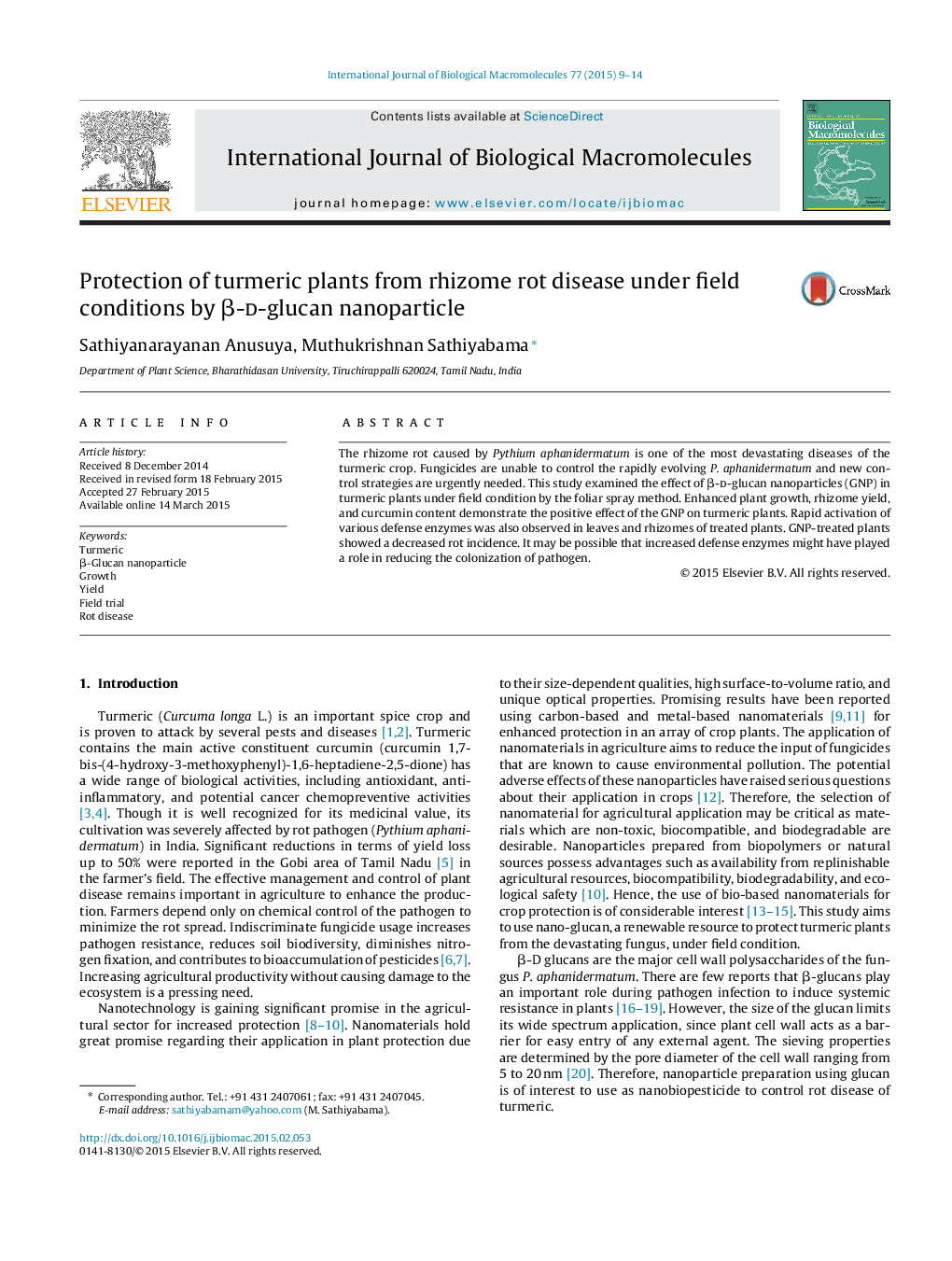| Article ID | Journal | Published Year | Pages | File Type |
|---|---|---|---|---|
| 1986250 | International Journal of Biological Macromolecules | 2015 | 6 Pages |
The rhizome rot caused by Pythium aphanidermatum is one of the most devastating diseases of the turmeric crop. Fungicides are unable to control the rapidly evolving P. aphanidermatum and new control strategies are urgently needed. This study examined the effect of β-d-glucan nanoparticles (GNP) in turmeric plants under field condition by the foliar spray method. Enhanced plant growth, rhizome yield, and curcumin content demonstrate the positive effect of the GNP on turmeric plants. Rapid activation of various defense enzymes was also observed in leaves and rhizomes of treated plants. GNP-treated plants showed a decreased rot incidence. It may be possible that increased defense enzymes might have played a role in reducing the colonization of pathogen.
